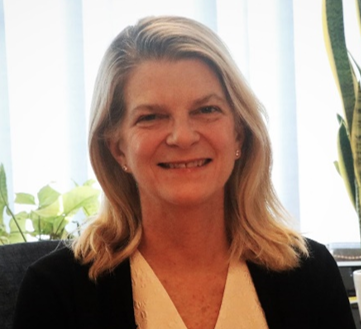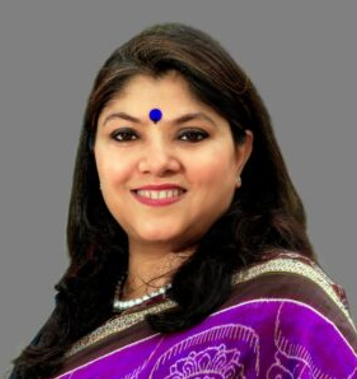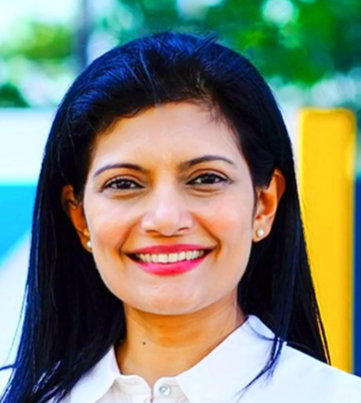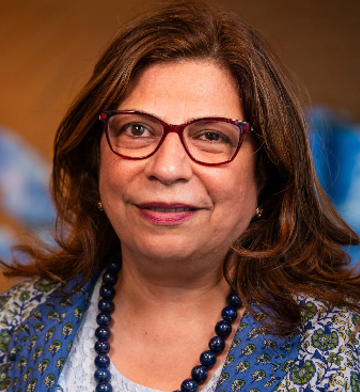YuWaah (Generation Unlimited in India) at UNICEF and Partners Unveil the ‘Green Rising India Alliance’ (GRIA): A Landmark Public-Private Initiative Announced Amidst COP28 to Spearhead Sustainable Development for 50 Million Youth
The GRIA is committed to empowering 50 million children and young adults with the knowledge and skills necessary for climate awareness, adaptability, and resilience by the year 2030.
NEW DELHI (India CSR): UNICEF and its global partnerships platform Generation Unlimited (also known as YuWaah in India) have partnered with key organizations committed to working towards a green future for children and young people as a part of the Green Rising India Alliance (GRIA). The alliance consists of YuWaah at UNICEF, Capgemini, Children’s Investment Fund Foundation, Rohini Nilekani Philanthropies, ReNew Foundation, The Rockefeller Foundation and SAP.
The GRIA aims to equip 50 million children and young people to become climate conscious, adaptable, and resilient by 2030. This is part of the global ‘Green Rising’ campaign that supports youth-led climate action which was launched at RewireED on 8th December hosted by the COP28 Presidency at the 28th United Nations Climate Change Conference in UAE.
This coalition is galvanizing private organizations, foundations, youth networks, multilaterals, and the Government of India to unify their commitment to sharing knowledge, efforts, and innovative solutions. The primary goal is to equip young people with the requisite opportunities not only to embrace a climate-conscious mindset but also to foster resilience, thereby enabling them to fully realize their potential. This alliance will further synergize investments, strategic priorities, and portfolios of work to unlock unprecedented opportunities to complement national efforts with the government and young people.
India has made significant strides through the National Action Plan on Climate Change and the establishment of the National Adaptation Fund for Climate Change to support concrete adaptation activities to address climate change vulnerabilities. Schemes like the National Green Mission with its focus on afforestation, reforestation, and increasing green cover and the Swachh Bharat Abhiyaan with its focus on improving waste management practices and sanitation, reducing environmental pollution are exemplary of India’s leadership on the climate agenda.
Based on the Mission Lifestyle for Environment (LiFE) introduced by Prime Minister Modi at COP26, the Ministry of Environment, Forest and Climate Change along with YuWaah and UNICEF created the Meri LiFE platform. More than 25 million pro-planet actions were reported through the Meri LiFE platform towards environmental conservation and adoption of LiFE behaviours.
The GRIA will enable, empower and engage young people, especially the most vulnerable, with the tools they need to become stewards of our planet through green skills, social impact, and economic opportunities and further partner with youth to co-design and scale transformative environmental initiatives.
As a public-private-youth partnerships platform at UNICEF, YuWaah led by Dhuwarakha Sriram will work towards unifying diverse climate initiatives under GRIA, a powerful platform in India to usher in a new era of sustainable development and environmental protection for and with young people.
Cynthia McCaffrey, UNICEF Representative to India and Co-chair, YuWaah Board

Cynthia McCaffrey, UNICEF Representative to India and Co-chair, YuWaah Board said, “UNICEF works with the Government and partners towards the common goal of ensuring that children and young people live in a safe and clean environment and have the education and skills they will need to adapt and create a green transition and a better world. UNICEF has been working with children and young people as prominent stakeholders to ensure that policies on climate, environment, energy and disaster risk reduction integrate their views, concerns and solutions. With YuWaah’s public-private-youth partnerships for GRIA, we want to further enable youth to co-create climate action and become changemakers for environmental protection.”
Cynthia McCaffrey, serving as the UNICEF Representative to India and holding the position of Co-chair on the YuWaah Board, provided a comprehensive insight into UNICEF’s endeavors and vision. She emphasized that UNICEF collaborates closely with the government and various partners, sharing a unified objective to ensure a secure and pristine environment for children and young people. A crucial part of this mission involves providing them with the necessary education and skills. These tools are indispensable for adapting to and fostering a sustainable, environmentally-friendly future, thereby contributing to the creation of a better world.
UNICEF’s approach is distinct in its active engagement with children and young people, not merely as beneficiaries but as key stakeholders in their initiatives. This involvement is particularly evident in the areas of climate change, environmental sustainability, energy, and disaster risk reduction. UNICEF ensures that the policies developed in these domains are not only informed by but also integrate the perspectives, concerns, and innovative solutions proposed by the younger generation.
In line with this approach, through YuWaah’s unique model of public-private-youth partnerships for the Global Resilience and Adaptation Initiative (GRIA), there is a strong emphasis on further empowering youth. This empowerment aims to facilitate their active participation in climate action, enabling them to not just contribute but also co-create solutions. The ultimate goal of these efforts is to nurture young individuals into changemakers who will play a pivotal role in driving environmental protection and sustainability. This strategy underscores UNICEF’s commitment to harnessing the potential of young people in addressing some of the most pressing global challenges, particularly those related to climate and the environment.
***
Ashwin Yardi, CEO of Capgemini in India

Ashwin Yardi, CEO of Capgemini in India said, “At Capgemini, in our commitment to developing net-zero solutions by 2030, we emphasize the central role of youth and firmly believe that young people are instrumental in guiding us toward a climate-resilient future.The global partnership between UNICEF and Capgemini is dedicated to driving the Green Rising initiative, which focuses on addressing climate change through youth-centered solutions in collaboration with Generation Unlimited. As YuWaah at UNICEF leads the Green Rising India Alliance, Capgemini joins key partners to collaborate in empowering young people and fostering a long-term commitment to sustainability through the strength of strategic partnerships.”
Cynthia McCaffrey, serving as the UNICEF Representative to India and holding the position of Co-chair on the YuWaah Board, provided a comprehensive insight into UNICEF’s endeavors and vision. She emphasized that UNICEF collaborates closely with the government and various partners, sharing a unified objective to ensure a secure and pristine environment for children and young people. A crucial part of this mission involves providing them with the necessary education and skills. These tools are indispensable for adapting to and fostering a sustainable, environmentally-friendly future, thereby contributing to the creation of a better world.
UNICEF’s approach is distinct in its active engagement with children and young people, not merely as beneficiaries but as key stakeholders in their initiatives. This involvement is particularly evident in the areas of climate change, environmental sustainability, energy, and disaster risk reduction. UNICEF ensures that the policies developed in these domains are not only informed by but also integrate the perspectives, concerns, and innovative solutions proposed by the younger generation.
In line with this approach, through YuWaah’s unique model of public-private-youth partnerships for the Global Resilience and Adaptation Initiative (GRIA), there is a strong emphasis on further empowering youth. This empowerment aims to facilitate their active participation in climate action, enabling them to not just contribute but also co-create solutions. The ultimate goal of these efforts is to nurture young individuals into changemakers who will play a pivotal role in driving environmental protection and sustainability. This strategy underscores UNICEF’s commitment to harnessing the potential of young people in addressing some of the most pressing global challenges, particularly those related to climate and the environment.
***
Manjula Singh, Executive Director-India, Children’s Investment Fund Foundation (CIFF)

Manjula Singh, Executive Director-India, Children’s Investment Fund Foundation (CIFF), “Congratulations the Government of India for its outstanding leadership in climate initiatives and commitment to 1.5°C while substantially reducing greenhouse gas emissions. With the launch of the Green Rising India Alliance (GRIA), it is exciting to see Governments, private organizations, foundations, youth networks, and multilateral, coming together to build a climate safe future- characterised by cleaner air, energy security, and sustainable jobs- along with smart stewardship of the planet’s resources. CIFF remains steadfast in its commitment to creating a world in which every child can flourish in a healthy, fair, and safe environment.“
Manjula Singh, the Executive Director for India at the Children’s Investment Fund Foundation (CIFF), conveyed her commendation and appreciation towards the Government of India for its remarkable leadership and proactive stance in addressing climate change. She applauded India’s commitment to maintaining global temperatures within a 1.5°C increase, a target that is crucial for mitigating the impacts of climate change, and its efforts in significantly reducing greenhouse gas emissions. This acknowledgment reflects the recognition of India’s role in global climate initiatives and its commitment to a sustainable future.
With the launch of the Green Rising India Alliance (GRIA), Singh expressed excitement and optimism about the collaborative efforts being undertaken. The alliance brings together a diverse range of stakeholders, including governments, private organizations, foundations, youth networks, and multilateral agencies. This collaborative approach is key to tackling the complex and multi-faceted issue of climate change.
Singh highlighted the alliance’s focus on building a climate-safe future, which is not limited to just reducing emissions but encompasses a broader vision. This vision includes achieving cleaner air, ensuring energy security, and creating sustainable jobs. These objectives are integral to a comprehensive approach to environmental stewardship and reflect a commitment to sustainable development.
Additionally, she emphasized the importance of smart stewardship of the planet’s resources, indicating a need for wise and sustainable management of natural resources to support both current and future generations.
CIFF’s steadfast commitment, as voiced by Singh, lies in creating a world where every child can thrive in a healthy, fair, and safe environment. This statement underscores CIFF’s dedication to not only addressing environmental issues but also ensuring that these efforts contribute to the overall well-being and prosperity of children. It highlights the foundation’s belief in the interconnectedness of environmental sustainability and the health and safety of future generations.
***
Gautam John, CEO, Rohini Nilekani Foundation
Gautam John, CEO, Rohini Nilekani Foundation, said,“With the Green Rising India Alliance, we recognise that the vibrancy of our planet lies in the hands of our youth. Their energy and vision are vital for fostering environmental sustainability and building resilient communities. Their passion and dedication are the cornerstones of our vision for a resilient and flourishing planet for all.”
Gautam John, serving as the CEO of the Rohini Nilekani Foundation, shared his insights and enthusiasm regarding the Green Rising India Alliance. He emphasized the pivotal role of youth in preserving the vitality of our planet. John acknowledged that young people possess a unique blend of energy and vision, which are crucial elements in driving efforts towards environmental sustainability and in building communities that are resilient to the challenges posed by climate change.
His statement reflects a deep understanding of the potential and power that young people hold in shaping a sustainable future. He sees the youth not just as beneficiaries or passive participants, but as active agents of change. Their passion and dedication are viewed as foundational to the efforts of creating a resilient and thriving planet. This perspective aligns with the broader vision of the Rohini Nilekani Foundation, which often emphasizes the empowerment and involvement of young people in societal transformation.
John’s remarks underscore the importance of nurturing and harnessing this youthful energy and vision. By doing so, we can foster a generation that is not only aware of environmental issues but is also equipped and motivated to address these challenges effectively. This approach is integral to the foundation’s commitment to a future where both people and the planet can flourish, highlighting a holistic view of sustainability that encompasses both environmental health and human well-being.
***
Vaishali Sinha, Founding Chair, ReNew Foundation

Vaishali Sinha, Founding Chair, ReNew Foundation, said “ReNew Foundation, rooted in the principles of Human, Social, and Natural capital development, places a strong emphasis on building resilience against climate change, with a focus on gender parity and securing a brighter future for the youth. We are thrilled to join forces with the alliance to address the critical challenges posed by climate change, especially in low-income and marginalized communities that face heightened risks. We look forward to bringing our experience and expertise to Green Rising India Alliance to advance technological solutions, green skills, and climate advocacy, to accelerate efforts to achieve the 2030 Agenda.”
Vaishali Sinha, the Founding Chair of the ReNew Foundation, outlined the foundation’s mission and its alignment with the goals of the Green Rising India Alliance. She emphasized that the ReNew Foundation is grounded in the principles of Human, Social, and Natural capital development. This framework underpins their approach to addressing climate change, emphasizing the need for resilience in this area. A key focus for the foundation is on promoting gender parity, underscoring the importance of considering gender perspectives in climate action and ensuring that efforts benefit all segments of society equally.
Sinha highlighted the foundation’s commitment to securing a brighter future for youth, recognizing the crucial role of younger generations in driving long-term environmental sustainability. This aligns with the broader objectives of the Green Rising India Alliance, which seeks to involve various stakeholders in the fight against climate change.
She expressed enthusiasm about joining forces with the alliance, particularly in addressing the challenges posed by climate change that disproportionately affect low-income and marginalized communities. These communities often face heightened risks and vulnerabilities due to climate change, making targeted actions in these areas critically important.
Sinha also looked forward to contributing the foundation’s experience and expertise to the alliance, particularly in advancing technological solutions, green skills, and climate advocacy. These areas are key to accelerating efforts towards achieving the United Nations’ 2030 Agenda for Sustainable Development. The ReNew Foundation’s involvement signifies a commitment to not just addressing the current impacts of climate change but also to investing in sustainable solutions and skills development that can pave the way for a more resilient future. This collaborative effort reflects the foundation’s dedication to creating lasting and impactful change in the realm of environmental sustainability.
***
Sindhu Gangadharan, SVP & MD, SAP Labs India and Head, SAP User Enablement

Sindhu Gangadharan, SVP & MD, SAP Labs India and Head, SAP User Enablement said, “At SAP, our objective is to create positive economic, social, and environmental impact within planetary boundaries – as an exemplar through our activities and as an enabler through our customers who use our products and services As we join hands with partners for Green Rising India Alliance, led by YuWaah at UNICEF, we endeavour to co-create an aligned approach to address the challenges of climate change through youth-led climate action and foster a powerful force for positive change through this partnership.”
Sindhu Gangadharan, Senior Vice President & Managing Director at SAP Labs India and Head of SAP User Enablement, shared SAP’s vision and commitment in the context of the Green Rising India Alliance. She highlighted that SAP’s goal extends beyond mere business success; it aims to generate positive impacts across three key dimensions: economic, social, and environmental. This holistic approach recognizes the importance of operating within the planet’s ecological limits and emphasizes the company’s role as both an exemplar in its own operations and as an enabler through the products and services it provides to customers.
Gangadharan’s statement underscores SAP’s understanding of its dual role. As an exemplar, SAP seeks to lead by example, demonstrating best practices in sustainability and responsible business operations. As an enabler, the company aims to empower its customers by providing them with the tools and solutions that can help them achieve their own sustainability goals. This approach reflects a broader vision of creating a sustainable and responsible business ecosystem.
In joining the Green Rising India Alliance, led by YuWaah at UNICEF, SAP is committing to a collaborative and youth-centric approach to addressing climate change. Gangadharan emphasized the importance of youth-led climate action, recognizing the unique insights, energies, and perspectives that young people bring to the table. This approach aligns with SAP’s commitment to fostering innovation and change, not just within its own operations but in broader society.
The partnership with the Green Rising India Alliance is seen as a powerful opportunity to co-create solutions and strategies to tackle the pressing challenges posed by climate change. SAP’s involvement signifies its dedication to leveraging its resources, expertise, and networks in collaboration with others to drive positive change. This collaborative effort aims to harness the collective strength of different stakeholders, creating a formidable force for sustainable development and environmental stewardship.
***
Deepali Khanna, Vice President – Asia, The Rockefeller Foundation

Deepali Khanna, Vice President – Asia, The Rockefeller Foundation, said, “The Rockefeller Foundation is investing USD 1 billion over the next five years to slow climate change even as we advance human opportunity. With the largest youth population in the world, India’s climate-conscious actions can foster resilience and innovation, accelerating impact that enables everyone to not just survive the climate crisis but thrive. We are proud to join the Green Rising India Alliance to empower youth, especially those living in frontline communities, to lead the charge towards a sustainable planet.”
Deepali Khanna, as the Vice President for Asia at The Rockefeller Foundation, outlined a bold and ambitious commitment from the Foundation in the realm of climate action and human development. She announced a significant financial commitment, with The Rockefeller Foundation planning to invest USD 1 billion over the next five years. This investment is targeted at two critical and interconnected goals: slowing the progression of climate change and advancing human opportunities.
Khanna emphasized the pivotal role that India plays in this global endeavor, noting that with the world’s largest youth population, India is in a unique position to drive significant change. The actions taken by India, particularly those that are climate-conscious, have the potential to not only address local and regional challenges but also to set a precedent for resilience and innovation on a global scale. The Foundation sees India’s youth as key actors in this process, capable of accelerating impactful solutions that will enable societies to not just endure the climate crisis but to thrive in spite of it.
The Rockefeller Foundation’s decision to join the Green Rising India Alliance aligns with this vision. The alliance represents a collective effort to empower youth, particularly those in frontline communities most affected by climate change. These communities often face the most immediate and severe impacts of environmental degradation and are crucial focal points for intervention.
Khanna’s statement reflects the Foundation’s commitment to not only providing resources but also to collaborating with partners who are aligned in their mission to create sustainable and equitable solutions. The focus on empowering youth is particularly significant, as it underscores the belief that young people are not just future leaders but are also capable of driving meaningful change in the present.
By joining the Green Rising India Alliance, The Rockefeller Foundation aims to contribute its resources and expertise to a collaborative effort that empowers youth to lead the way towards a sustainable planet. This partnership is indicative of a broader strategy to engage diverse stakeholders in the fight against climate change, ensuring that solutions are holistic, inclusive, and sustainable.
***
Dhuwarakha Sriram, Chief of Generation Unlimited in India (YuWaah), Youth Development and Partnerships at UNICEF

Dhuwarakha Sriram, Chief of Generation Unlimited in India (YuWaah), Youth Development and Partnerships at UNICEF said, “YuWaah at UNICEF has brought together key stakeholders for the Green Rising India Alliance and through this strategic collaboration we commit to co-creating sustainable and impactful contribution to the urgent cause of climate action. Together, we will nurture youth-led action in India and bring new energy to our collective initiatives to foster innovative and inclusive solutions, at scale to multiply our impact. We recognise the power of young people as the changemakers in combatting Climate Change and supporting Environmental Sustainability and thus we are partnering to further build their potential and create opportunities for and with them to lead on issues that matter the most to them.”
Dhuwarakha Sriram, who holds the position of Chief of Generation Unlimited in India (YuWaah) and oversees Youth Development and Partnerships at UNICEF, provided a comprehensive view of YuWaah’s role and aspirations within the Green Rising India Alliance. Sriram emphasized the collaborative nature of YuWaah’s efforts at UNICEF, highlighting the organization’s success in bringing together key stakeholders to form a strategic coalition for climate action.
The main focus of YuWaah in this initiative is to co-create sustainable and impactful contributions to climate action. This approach is characterized by a commitment to working in partnership with various entities, leveraging the strengths and resources of each to create a unified and effective response to the urgent challenges posed by climate change.
Sriram underscored the central role of youth in these efforts, acknowledging the immense potential and energy that young people bring to the climate action movement. YuWaah’s strategy involves nurturing and amplifying youth-led action in India, with the aim of injecting new vigor and perspective into collective climate initiatives. This youth-centric approach is seen as critical for fostering innovative and inclusive solutions that can be implemented on a large scale, thereby multiplying the impact of these efforts.
Recognizing young people as changemakers in the fight against climate change and in supporting environmental sustainability, YuWaah is dedicated to building their potential and creating opportunities for them. The goal is to enable young individuals to take the lead on issues that are most pertinent to them, empowering them to become active participants and leaders in shaping a sustainable future.
Sriram’s statement reflects a deep belief in the power of partnership and collaboration, especially with the youth, in addressing global challenges like climate change. YuWaah at UNICEF, through the Green Rising India Alliance, aims to be a catalyst in this process, fostering an environment where young people can contribute significantly to creating a more sustainable and resilient world.
***
Aswini Kumar Paital, India Young Climate Leaders at COP28

Aswini Kumar Paital, India Young Climate Leaders at COP28 said, “Empowering and educating youth about climate resilience is not just an investment in our future, but a powerful solution to climate change. As a young person, I am thrilled to see these stakeholders come together with a shared commitment to environmental sustainability, conservation, and building resilient communities that resonates deeply with me. With Green Rising India Alliance, these partners are sharing the responsibility and accountability of building a resilient future with youth at the centre.”
Aswini Kumar Paital, a representative of India Young Climate Leaders at COP28, shared his perspective on the importance of youth empowerment and education in the context of climate resilience. He emphasized that investing in the younger generation is not just a preparation for the future but a potent and immediate solution to the challenges of climate change. Paital’s viewpoint reflects a growing recognition that young people are not merely beneficiaries of climate action but are essential contributors to these efforts.
Expressing his personal enthusiasm, Paital noted the significance of various stakeholders coming together under the banner of the Green Rising India Alliance. This collaboration, which includes commitments to environmental sustainability, conservation, and building resilient communities, deeply resonates with his own values and aspirations as a young climate leader. He sees this alliance as a meaningful platform that aligns with the goals and concerns of young individuals like himself.
Paital particularly highlighted the inclusive approach of the Green Rising India Alliance, which places youth at the center of its initiatives. By doing so, the alliance is not just involving young people in existing frameworks but is sharing the responsibility and accountability of building a resilient future with them. This approach signifies a shift from traditional top-down methods to a more participatory and inclusive model, where the insights, energies, and capabilities of youth are recognized as vital components in the fight against climate change.
His statement underscores the belief in the transformative potential of youth-led action and the importance of creating opportunities for young people to lead and contribute to climate resilience efforts. The Green Rising India Alliance, by actively involving and centering youth, demonstrates a commitment to harnessing this potential and working collaboratively towards a sustainable and resilient future.
(India CSR)







